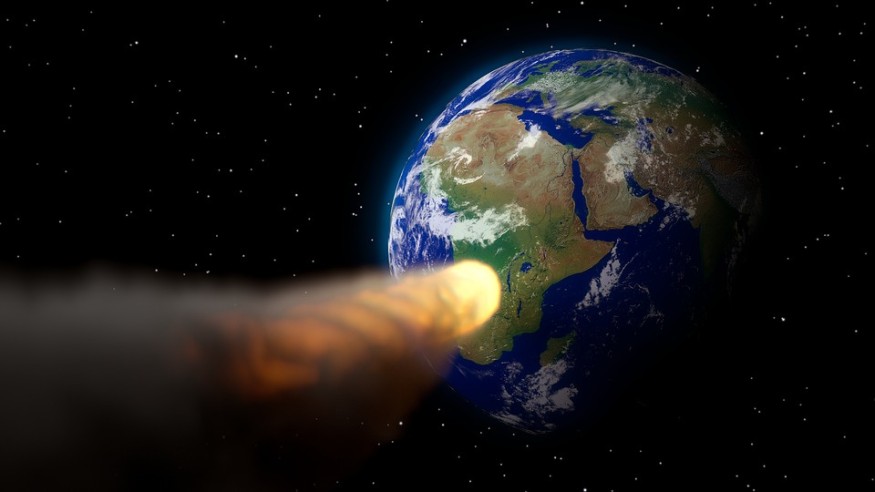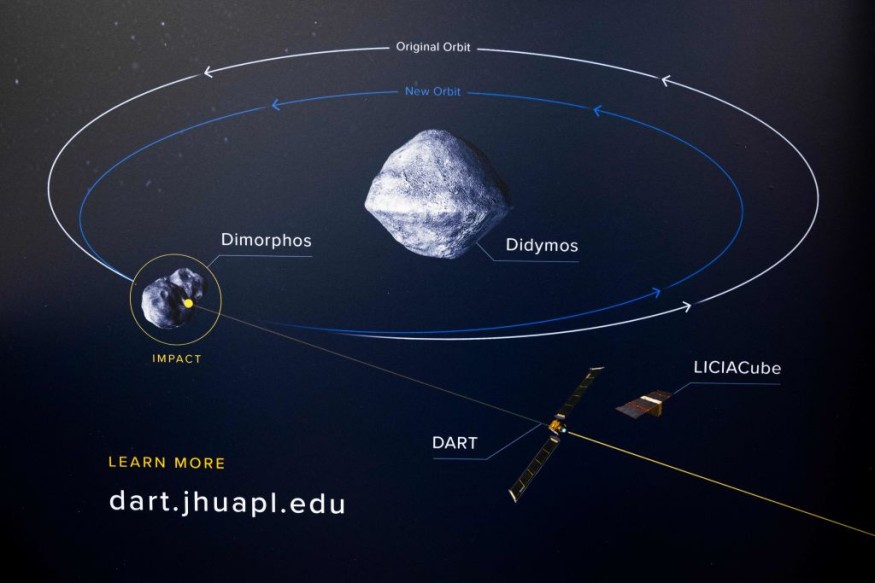A huge "planet killer" asteroid has been discovered and is heading in our direction. The space rock 2022 AP7, which has a diameter of 1 to 2 km and passes our orbit, has "no risk" of impacting Earth.

Largest in Eight Years
According to astronomers, the largest planet-killer-sized asteroid to be found in eight years will cross Earth's orbit.
Researchers exploring space pebbles near the Earth and Venus' orbits discovered the asteroid 2022 AP7.
One of the three "quite big" asteroids discovered by main research author Scott Sheppard and colleagues at the Carnegie Institution for Science in Washington, 2022 AP7, crosses the Earth's orbit, making it a potentially dangerous asteroid, they report in the Astronomical Journal (PHA).
The team claims that 2022 AP7, with a diameter ranging from 1.1 to 2.3 km, is the biggest PHA observed since 2014 and is likely among the top 5% of all known PHAs.
Sheppard stated that "any asteroid over 1 kilometer in size is regarded a planet killer" and that if such an object were to collide with Earth, it would have a catastrophic effect on life as we know it by kicking up dust and contaminants into the atmosphere, where they would remain for years.
The lack of sunshine would probably cause the Earth's surface to cool considerably. He added that the Earth hasn't had a huge extinction catastrophe like that in millions of years.
Should We Be Afraid?
The discovery of the 2022 AP7 may conjure up images of the asteroid Armageddon shown in the movie Don't Look Up, but the study also provides comfort.
Currently, 2022 AP7 passes the Earth's orbit while it is on the opposite side of the sun; Sheppard asserted, "It has no chance to impact the Earth at all."
Sheppard noted that the asteroid would gradually begin to cross Earth's orbit closer to where our planet is located over time. But he said, "this will be millennia from now, and we do not know the orbit of 2022 AP7 precisely enough to say anything about its risks."
Sheppard stated that the team's survey effort, which uses the Blanco four-meter telescope in Chile, is expected to discover "a few more" planet-killing near-earth objects 1km in size or greater in the upcoming year or two.
The Earth is a pretty modest target, according to Jay Tate, director of the National Near Earth Objects Information Centre in mid Wales, who told the Guardian that he was not losing sleep over 2022 AP7. "The effect likelihood is now relatively low, at least. Though not insignificant, I would describe it as low.
Planetary Defense

NASA's Dart mission, launched in September, involved ramming a spacecraft into an asteroid to alter the latter's orbit. The mission's goal was to test equipment that may one day be applied to deal with space objects that could be dangerous to Earth. Researchers affirmed Dart's effectiveness last month.
Given the size of the asteroid, Tate said a technique like Dart would not be appropriate for 2022 AP7, but other strategies might work.
However, he added, "We've got plenty of time," adding that it could be feasible to utilize several Dart-like hits to change the asteroid's course gradually.
For more Space news, don't forget to follow Nature World News!
© 2026 NatureWorldNews.com All rights reserved. Do not reproduce without permission.





